Speakers
KATZ V. U.S.: 40 YEARS LATER - FROM WARRANTLESS WIRETAPS TO THE WAR ON TERROR
MARCH 9, 2007
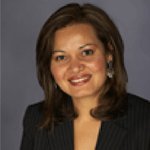
Raquel Aldana
Professor of Law
Professor Aldana earned her J.D. degree in 1997 from Harvard Law School, where she served as articles editor of the Harvard Civil Rights-Civil Liberties Law Review. Prior to coming to the Boyd School of Law, Professor Aldana worked for the Center for Justice and International Law representing victims of gross human rights violations in the Inter-American System on Human Rights. She also taught a seminar in human rights at the University of Baltimore School of Law. Prior to that, she was an associate at the law firm of Jones, Day, Reavis & Pogue in Washington, D.C. Professor Aldana teaches Immigration Law, Criminal Law, Criminal Procedure, Procedure, International Human Rights, and International Public Law. She was also a 2006 Fulbright Scholar in Guatemala where she taught courses on economic rights and conducted research on femicide.
Raquel E. Aldana's Publications
- A Victim-Centered Reflection on Truth Commissions and Prosecutions as a Response to Mass Atrocities, 5 J. HUM. RTS. 107 (2006).
- "Aliens" in our Midst Post-9/11: Legislating Outsiderness Within the Borders, 38 U.C. DAVIS L. REV. 1683 (2005) (with Sylvia R. Lazos) (reviewing BILL ONG HING, DEFINING AMERICA THROUGH IMMIGRATION POLICY (MAPPING RACISMS) (2003), KEVIN R. JOHNSON, THE "HUDDLED MASSES" MYTH: IMMIGRATION AND CIVIL RIGHTS (2003), and VICTOR C. ROMERO, ALIENATED: IMMIGRANT RIGHTS, THE CONSTITUTION, AND EQUALITY IN AMERICA (2004)).
- The September 11 Immigration Detentions and Unconstitutional Executive Legislation, 29 S. ILL. U. L.J. 5 (2004-05).
- Steps Closer to Justice for Past Crimes in Argentina and Chile: A Story of Judicial Boldness, INSTANT ANALYSIS, Nov. 17, 2004, available at http://www.law.case.edu/war-crimes-researchportal/instant_analysis.asp.
- An Emerging Universality of Justiciable Victims' Rights in the Criminal Process to Curtail Impunity for State-Sponsored Crimes, 26 HUM. RTS. Q. 605 (2004).
- Book Review, 25 HUM. RTS. Q. 257 (2003) (reviewing MARGARET POPKIN, PEACE WITHOUT JUSTICE: OBSTACLES TO BUILDING THE RULE OF LAW IN EL SALVADOR (2000)).
- The 9/11 "National Security" Cases: Three Principles Guiding Judges' Decision-Making, 81OR. L. REV. 985 (2002).
- In Vindication of Justiciable Victims' Rights to Truth and Justice for State-Sponsored Crimes, 35 VAND. J. TRANSNAT L L. 1399 (2002).
- The U.S. Supreme Court Grants Partial Victory to Some Non-Citizens in Indefinite INS Detention, NEV. LAW., Nov. 2001, at 15.
- When the Free Market Visits the Public Schools: Answering the Roll Call for Disadvantaged Students, 15 NAT'L BLACK L.J. 26 (1997-98).
http://www.law.unlv.edu/faculty_raquelAldana.html
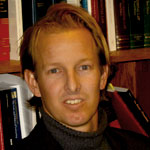
Timothy Casey
Associate Professor of Law
B.A. (Boston College); J.D. (University of California, Hastings) LL.M. (Columbia)
Mr. Casey practiced criminal law with the Legal Aid Society in New York City, first with the Trial Division and then with the Criminal Appeals Bureau. He later trained newly hired attorneys and developed a niche practice in coram nobislitigation. He joined the Case faculty in 2004, arriving from Columbia Law School where, as an Associate in Law, he developed and taught the Criminal Practice Clinic. In 2003, he was awarded a Public Policy Fellowship at Columbia's School of International and Public Affairs. In 2004, he was presented with the Presidential Teaching Award at Columbia University, and in 2005, he received a UCITE Learning Fellowship at Case Western Reserve University. His scholarly interests include public institutional design and specialized courts, and he recently published an article on juvenile drug courts, When Good Intentions are Not Enough: Problem Solving Courts and the Impending Crisis of Legitimacy, 57 SMU L. Rev. 1459. Mr. Casey currently teaches the Criminal Justice Clinic.
http://law.case.edu/faculty/faculty_detail.asp?adj=0&id=822
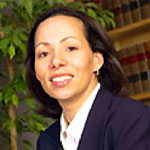
Sharon Davies
John C. Elam/Vorys Sater Designated Professor of Law
B.A., University of Massachusetts at Amherst
J.D., Columbia University School of Law
Professor Davies was a Harlan Fiske Stone Scholar and a Notes and Comments Editor of the Columbia Law Review while in law school at Columbia University. After graduation she worked as an Associate Attorney for Steptoe and Johnson in Washington, D.C. and Lord, Day & Lord Barrett Smith in New York City.
Professor Davies served for five years as an Assistant United States Attorney in the Criminal Division of the United States Attorney's Office in the Southern District of New York, widely thought to be the premiere U.S. Attorney's Office in the country.
She joined the faculty at Ohio State University in 1995, was awarded tenure in 1999, and was promoted to Full Professor in 2002.
Professor Davies' primary research focus is in the area of criminal law and procedure. Her articles have been published in a variety of leading journals including the Michigan Law Review, the Duke Law Journal, the Southern California Law Review, and Law and Contemporary Problems. Professor Davies teaches Criminal Law, Criminal Procedure (Police Practices), and Evidence.
http://moritzlaw.osu.edu/faculty/bios.php?ID=16
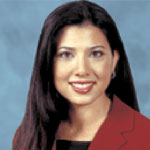
Aya Gruber
Associate Professor of Law
Aya Gruber is an associate professor of law and member of the founding faculty of Florida International University College of Law. As the primary criminal law scholar at FIU, Professor Gruber has taught criminal law to all FIU first year students, as well as teaching criminal procedure and advanced criminal procedure to upper division students.
Professor Gruber completed her undergraduate studies in Philosophy at the University of California at Berkeley, where she received departmental honors for her thesis, graduated summa cum laude, and was named to Phi Beta Kappa. She graduated magna cum laude from Harvard Law School, where she was an editor on the Harvard Women’s Law Journal and the Harvard International Law Journal. After clerking for the Honorable James Lawrence King, on the U.S. District Court for the Southern District of Florida, Professor Gruber served as a felony trial attorney with the Public Defender Service in Washington, D.C and Federal Public Defender in Miami. Professor Gruber joined the FIU law faculty in 2002 as an assistant professor, becoming an associate professor in 2005.
Professor Gruber’s main research areas are substantive criminal law and procedure, with an emphasis on victim’s rights and liability, critical race and feminism, and national security and constitutional law. Professor Gruber has published in prominent law reviews and has presented her scholarship at several conferences, including, SEALS, LatCrit, and Law and Society, as well as at various faculty colloquia. A frequent public speaker on civil liberties and criminal justice, Professor Gruber has appeared on Fox News International, ABC, PBS, and TV Marti. She has also been quoted in various newspapers, including the Miami Herald and Ft. Lauderdale Sun Sentinel, on topics ranging from civil rights to the death penalty.
Articles:
- The Geneva Canon: International Law as a Tool of Legislative Interpretation in the Terrorism Cases, ___ FIU L. Rev. ___ (work in progress).
- The Feminist War on Crime, ___ Iowa L. Rev. ___ (forthcoming 2007).
- Raising the Red Flag: The Continued Relevance of the Japanese Internment in the Post Hamdi World, 54 Kansas L. Rev. 307 (2006).
- Navigating Diverse Identities: Building Coalitions through Redistribution of Academic Capital, an Exercise in Praxis, 35 Seton Hall L. Rev 1201 (2005).
- Righting Victim Wrongs: Responding to Philosophical Criticisms of the Nonspecific Victim Liability Defense, 52 Buffalo L. Rev 101 (2004).
- Victim Wrongs: The Case for a Criminal Defense Based on Wrongful Victim Behavior in an Era of Victim’s Rights, 77 Temp. L. Rev. 645 (2003).
- Pink Elephants in the Rape Trial: The Problem of Tort-type Defenses in the Criminal Law of Rape, 4 Wm. & Mary J. Women & L. 203 (1998).
- Public Housing in Singapore: The Use of Ends-based Reasoning in the Quest for a Workable System, 38 Har. Int’l L. J. 236 (1997).

Christian Halliburton
Associate Professor of Law
Christian Mukunda Halliburton is a Professor at Seattle University School of Law, where he teaches courses in Criminal Law, Constitutional Law, Criminal Procedure, and Law and Religion. After receiving his JD from Columbia University School of Law, Professor Halliburton spent several years in private firm practice, and two years clerking for the Honorable Barbara Jacobs Rothstein of the United States District Court in Seattle, before joining the faculty at Seattle University. An anthropologist by training, Professor Halliburton tends to focus his teaching and scholarship on the human aspect of the institution of legal regulation – both in terms of determining optimal regulatory regimes, and as a way of internalizing the universe of societal costs associated with such regimes. Professor Halliburton has written articles on topics ranging from jurisprudential theories of evidentiary exclusion under the Fourth Amendment to the intersection of race and criminal law in the post-Brown v. Board of Education context. In addition to his teaching and involvement in the Seattle University School of Law community, Professor Halliburton is actively involved in the protection and pursuit of individual civil liberties as a member of the Board of Directors for the American Civil Liberties Union of Washington, and regularly provides public and media presentations on civil rights and individual freedoms.
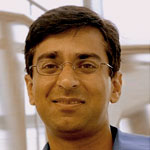
Anil Kalhan
Visiting Assistant Professor of Law
Yale Law School, J.D.
Yale School of Management, M.P.P.M.
Brown University, A.B. honors, magna cum laude
Anil Kalhan is a Visiting Assistant Professor of Law at Fordham Law School. Before coming to Fordham, he was an Associate in Law at Columbia Law School, and he previously served as a litigation associate at Cleary, Gottlieb, Steen & Hamilton and co-coordinator of the firm's immigration and international human rights pro bono practice group. He also has previously worked for the ACLU Immigrants' Rights Project in New York and the South Asia Human Rights Documentation Centre in New Delhi, India, and served as law clerk to the Hon. Chester J. Straub (U.S. Ct. of App., 2d Cir.) and the Hon. Gerard E. Lynch (U.S. Dist. Ct., S.D.N.Y.). He currently serves on the advisory board of the Discrimination and National Security Initiative of the Harvard University Pluralism Project, and is a member of the International Law Committee of the Association of the Bar of the City of New York and a past member of its International Human Rights Committee. Before attending law school, he worked for Cable News Network, the MacNeil/Lehrer NewsHour, and the New York City Department of Transportation. He received a J.D. from Yale Law School, an M.P.P.M. at the Yale School of Management, and an A.B. from Brown University. His areas of interest include immigration and citizenship, criminal law and procedure, international human rights, law of South Asia, and Asian Americans and the law.
Colonial Continuities: Human Rights, Antiterrorism, and Security Laws in India, 20 Colum. J. Asian L. (forthcoming 2007).
"Immigration Law: The 'Plenary Power' Doctrine," in The Encyclopedia of the Supreme Court (David Schultz ed., Facts on File, Inc., 2005).
http://law.fordham.edu/ihtml/fac-2bioPP.ihtml?id=507&bid=1186
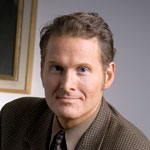
Erik Luna
Hugh B. Brown Chair of Law Professor of Law
J.D., Stanford University (1996)
B.S., University of Southern California (1993)
Professor Luna graduated summa cum laude from the University of Southern California, and he received his J.D. with honors from Stanford Law School, where he was an editor of the Stanford Law Review. Upon graduation, Professor Luna was a prosecutor in the San Diego District Attorney's Office and a fellow and lecturer at the University of Chicago Law School. He has served as the senior Fulbright Scholar to New Zealand, where he taught at Victoria University Law School and conducted research on restorative justice. He has also been a visiting professor at the University of Havana Law School and has taught U.S. constitutional law and criminal justice to judges and attorneys in Cuba. Professor Luna is the co-director of the Utah Criminal Justice Center, a partnership among the colleges of law, social and behavioral science, and social work, to foster interdisciplinary research and study in criminal justice. Among other professional activities, he serves on the board of directors for the Rocky Mountain Innocence Center and the Salt Lake Legal Defenders Association, and he is a member of the Utah Supreme Court's Advisory Committee on the Rules of Criminal Procedure.
Professor Luna teaches criminal law, criminal procedure, constitutional law, advanced criminal procedure, comparative criminal justice, and juvenile justice.
Scholarship Highlights
- "Restorative Justice in Federal Sentencing: An Unexpected Benefit of Booker?," 37 McGeorge Law Review - (forthcoming 2006) (federal sentencing symposium)
- “La Justicia Restorativa: Un Modelo de Penas Alternativas,” in “La Implementación de Penas Alternativas” (Union Nacional de Juristas de Cuba 2006) [book on alternative sanctions]
- "Gridland: An Allegorical Critique of Federal Sentencing," 96 Journal of Criminal Law & Criminology 25 (2005)
- "System Failure," 43 American Criminal Law Review 1201 (2005) (wrongful convictions symposium)
- "The Overcriminalization Phenomenon," 54 American University Law Review 703 (2005) (overcriminalization symposium)
- "Cuban Criminal Justice and the Ideal of Good Governance," 14 Transnational Law & Contemporary Problems 529 (2004) (future of Cuba symposium)
- "Foreword: The New Face of Racial Profiling," 2004 Utah Law Review 905 (2004) (racial profiling symposium)
- "A Place for Comparative Criminal Procedure," 41 Brandeis Law Journal 277 (2003-04) (criminal procedure symposium)
- "Introduction: The Utah Restorative Justice Conference," 2003 Utah Law Review 1 (restorative justice symposium)
- "Punishment Theory, Holism, and the Procedural Conception of Restorative Justice," 2003 Utah Law Review 205 (restorative justice symposium)
- "Race, Crime, and Institutional Design," 65 Law & Contemporary Problems 183 (2003) (race and crime symposium)
- "Drug Exceptionalism," 47 Villanova Law Review 753 (2002) (drug war symposium)
- "The .22 Caliber Rorschach Test," 39 Houston Law Review 53 (2002) (solicited commentary on Frankel Lecture)
- "Constitutional Road Maps," 90 Journal of Criminal Law and Criminology 1125 (2000)
- "Principled Enforcement of Penal Codes," 4 Buffalo Criminal Law Review 517 (2000) (Model Penal Code symposium)
- "Transparent Policing," 85 Iowa Law Review 1107 (2000)
- "Sovereignty and Suspicion," 48 Duke Law Journal 787 (1999)
- "The Models of Criminal Procedure," 2 Buffalo Criminal Law Review 389 (1999) (criminal procedure symposium)
- "Beyond Breard," 17 Berkeley Journal of International Law 147 (1999)
Works in Progress
- "The Story of Robinson v. California," in "Criminal Law Stories" (Robert Weisberg ed., Foundation Press)
- "Drugs and Justice" (with M. Battin et al., Oxford U. Press)
- "Lottery of Death: Discretion in American Capital Punishment" (N.Y.U. Press)
http://www.law.utah.edu/faculty/displayProfile.asp?id=74&name=Luna,Erik
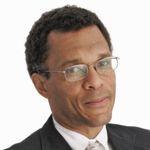
Tracey Maclin
Joseph Lipsitt Faculty Research Scholar & Professor of Law
EDUCATION
COLUMBIA UNIVERSITY SCHOOL OF LAW, New York, New York
Juris Doctor, May 1983
Honors & Activities: Harlan Fiske Stone Scholar (Dean’s List) (second year)
Charles Evans Hughes Scholar
TUFTS UNIVERSITY, Medford, Massachusetts
Bachelor of Arts in Political Science, May 1980
Graduated Magna Cum Laude
Activities: Big Brother Association of Boston
Intercollegiate Football
EMPLOYMENT
Present Professor of Law – BOSTON UNIVERSITY SCHOOL OF LAW Boston, Massachusetts
Aug 1995- Visiting Professor of Law – HARVARD LAW SCHOOL
July 1996 Cambridge, Massachusetts
June 1992- Visiting Professor of Law – CORNELL LAW SCHOOL
June 1993 Ithaca, New York
June 1990- Professor of Law – BOSTON UNIVERSITY SCHOOL OF
June 1992 LAW Boston, Massachusetts
July 1989- Visiting Associate Professor of Law – CORNELL LAW
June 1990 SCHOOL Ithaca, New York
June 1987- Associate Professor of Law - BOSTONUNIVERSITY
June 1988 SCHOOL OF LAW Boston, Massachusetts
July 1985- Assistant Professor of Law – UNIVERSITY OF KENTUCKY
May 1987 COLLEGE OF LAW Lexington, Kentucky
Oct. 1984- Associate - CAHILL GORDON & REINDEL
June 1985 New York, New York
Sept. 1983- Law Clerk – THE HONORABLE BOYCE F. MARTIN, JR.
Sept. 1984 Circuit Judge United States Court of Appeals, Sixth Circuit
LAW REVIEW ARTICLES, BOOK CHAPTERS & PUBLICATIONS
A Criminal Procedure Regime Based On Instrumental Values, 22 Constitutional Commentary 197 (2005). A Review of About Guilt and Innocence: The Origins, Development, and Future of Constitutional Criminal Procedure, By Donald A. Dripps (2003)
Secret Agents in Private Spaces: The Story of Hoffa v. United States, in Criminal Procedure Stories (Carol S. Steiker ed., 2006)
Is Obtaining An Arrestee’s DNA a Valid Special Needs Search Under the Fourth Amendment? What Will the Supreme Court Do? 33:1 Journal of Law, Medicine & Ethics 102 (2005) (Refereed Journal)
The Pringle Case’s New Notion of Probable Cause: An Assault on Di Reand the Fourth Amendment, 2003-2004 Cato Supreme Court Review 395
James Otis, (1725-1783), Yale Biographical Dictionary of American Law (forthcoming)
Is Yale Kamisar as Good as Joe Namath?: A Look Back at Kamisar’s “Prediction” of Miranda v. Arizona, 2 Ohio State Journal of Criminal Law 33 (2004) (Tribute to Professor Yale Kamisar) (Invited author)
“Voluntary” Interviews and Airport Seizures of Middle Eastern Men: The Fourth Amendment in a Time of Terror, 73 Mississippi Law Journal 471 (2003) (Symposium Volume: The Permissibility of Race or Ethnicity as a Factor in Assessing the Reasonableness of a Search or Seizure) (Invited author)
Wiretapping and Eavesdropping, in 4 Encyclopedia of Crime and Justice 1677 (Joshua Dressler ed., 2002)
Katz, Kyllo and Technology: Virtual Fourth Amendment Protection in the Twenty-First Century, 72 Mississippi Law Journal 51 (2002) (Symposium Volume: The Effect of Technology on Fourth Amendment Analysis and Individual Rights) (Invited author)
Let Sleeping Dogs Lie: Why the Supreme Court Should Leave Fourth Amendment History Unabridged, 82 Boston University Law Review 895 (2002)
The Fourth Amendment on the Freeway, 3 Rutgers Race and the Law Review 117 (2001) (Symposium Volume) (Invited author)
What Can Fourth Amendment Doctrine Learn From Vagueness Doctrine? 3 University of Pennsylvania Journal of Constitutional Law 398 (2001) (Symposium 2000: Race, Crime and the Constitution) (Invited author)
Drug Testing: The Fourth Amendment, in The Constitution and its Amendments (Roger K. Newman, ed., 1999)
Terry v. Ohio’s Fourth Amendment Legacy: Black Men and Police Discretion, 72 St. John’s Law Review 1271 (1998) (Symposium Volume on the Thirtieth Anniversary of Terry v. Ohio) (Invited author)
Race and the Fourth Amendment, 51 Vanderbilt Law Review 333 (1998)
Excerpted in Critical Race Theory: Cases, Materials, and Problems (Dorothy A. Brown ed. 2003)
The Complexity of the Fourth Amendment: A Historical Review, 77 Boston University Law Review 925 (1997)
Informants and The Fourth Amendment: A Reconsideration, 74 Washington University Law Quarterly 1 (1996)
When the Cure For The Fourth Amendment is Worse Than the Disease, 68 Southern California Law Review 1 (1994)
Excerpted in A Criminal Procedure Anthology (Wasserstrom & Snyder ed. 1996)
The Central Meaning of the Fourth Amendment, 35 William & Mary Law Review 197 (1993)
Justice Thurgood Marshall: Taking the Fourth Amendment Seriously, 77 Cornell Law Review 723 (1992)
“Black and Blue Encounters” – Some Preliminary Thoughts About Fourth Amendment Seizures: Should Race Matter? 26 Valparaiso Univ. Law Review 243 (1991) (Symposium Volume on Bicentennial of the Bill of Rights) (Invited author)
Excerpted in Modern Criminal Procedure: Cases – Comments – Questions (Kamisar, LaFave, Israel & King, 11th ed. 2005)
Excerpted in A Criminal Procedure Anthology (Wasserstrom & Snyder ed. 1996)
The Decline of the Right of Locomotion: The Fourth Amendment on the Streets, 75 Cornell Law Review 1258 (1990)
Reprinted in 1991 Criminal Law Review
Seeing the Constitution From the Backseat of a Police Squad Car: An Essay on Tempered Zeal by H. Richard Uviller, 70 Boston University Law Review 543 (1990)
Excerpted in A Criminal Procedure Anthology (Wasserstrom & Snyder ed. 1996)
Constructing Fourth Amendment Principles From the Government Perspective: Whose Amendment Is It, Anyway? 25 American Criminal Law Review 699 (1988)
New York v. Class: A Little-Noticed Case With Disturbing Implications, 78 Journal of Criminal Law and Criminology 1 (1987)
OTHER PUBLICATIONS
Amending the Fourth: Another Grave Threat to Liberty, National Law Journal (November 12, 2001)
Open Door Policy: Court Rulings on Traffic Stops Undercut Fourth Amendment Protections, ABA Journal, (July, 1997)
Can a Traffic Offense Be D.W.B. (Driving While Black)?, Los Angeles Times, (March 9, 1997)
Court Is Off Base on Student Drug Tests, Newsday (New York) (Aug. 8, 1995)
Public Housing Searches Ignore the Constitution, Christian Science Monitor (May 24, 1994)
Warrantless Sweeps are an Erosion of Freedom, Houston Chronicle (April 22, 1994)
Black and Blue: African-Americans and Police, Reconstruction, Vol. 2, No. 1 (1992)
They Weren’t True Blue, New York Newsday (Oct. 7, 1992)
The Right To Be Left Alone, AALS Criminal Justice Section Newsletter (December, 1990)
The Fourth Amendment is Under Attack—Does Anybody Care? 17 Cornell Law Forum 7 (1990)
Fourth Amendment Attack, Syracuse Post-Standard (Jan. 3, 1990)
Innocent People Being Hurt by Anger, Frustration, Charlestown Gazette (West Virginia) (December 27, 1989)
AMICUS BRIEFS
Counsel of Record in the United States Supreme Court for The Cato Institute and the National Association of Criminal Defense Lawyers and author of amicus brief in Hudson v. Michigan ___ U.S. ___ (2006)
Counsel of Record in the United States Supreme Court for the American Civil Liberties Union and the National Association of Criminal Defense Lawyers and author of amicus brief in Thornton v. United States, 541 U.S. 615 (2004)
Counsel of Record in the United States Supreme Court for the American Civil Liberties Union and the National Association of Criminal Defense Lawyers and author of amicus brief in Maryland v. Pringle, 540 U.S. 366 (2003)
Counsel of Record in the United States Supreme Court for the American Civil Liberties Union and the National Association of Criminal Defense Lawyers and author of amicus brief in Arizona v. Gant, 540 U.S. 963 (2003)
Counsel of Record in the United States Supreme Court for the National Association of Criminal Defense Lawyers and author of amicus brief inFlorida v. Thomas, 532 U.S. 774 (2001)
Counsel of Record in the United States Supreme Court for the American Civil Liberties Union and the National Association of Criminal Defense Lawyers and author of amicus brief in Illinois v. Wardlow, 528 U.S. 119 (2000)
Counsel of Record in the United States Supreme Court for the American Civil Liberties Union and the National Association of Criminal Defense Lawyers and author of amicus brief in Minnesota v. Carter, 525 U.S. 83 (1998)
Counsel of Record in the United States Supreme Court for the American Civil Liberties Union and the National Association of Criminal Defense Lawyers, and author of amicus brief in Pa. Board of Probation and Parole v. Scott, 514 U.S. 357 (1998)
Counsel of Record in the United States Supreme Court for the American Civil Liberties Union and the National Association of Criminal Defense Lawyers, and author of amicus brief in Richards v. Wisconsin, 520 U.S. 385 (1997)
Counsel of Record in the United States Supreme Court for the American Civil Liberties Union and author of amicus brief in Ohio v. Robinette, 519 U.S. 33 (1996)
Counsel of Record in the United States Supreme Court for the American Civil Liberties Union and National Association of Criminal Defense Lawyers and author of amicus brief in Ornelas v. United States, 517 U.S. 690 (1996)
Counsel of Record in the United States Supreme Court for the American Civil Liberties Union and National Association of Criminal Defense Lawyers, and author of amicus brief in Wilson v. Arkansas, 514 U.S. 927 (1995)
Counsel of Record for American Civil Liberties Union and author of amicus brief in Arizona v. Evans, 514 U.S. 1 (1995)
RECENT ACTIVITIES & SPEECHES
Invited Speaker: Mid-Year Meeting of Association of American Law Schools, Workshop on Criminal Law and Procedure: Lessons from Other Disciplines and New Realities. (Vancouver, British Columbia, Canada) (June 11-16, 2006)
Invited Speaker: DNA Fingerprinting & Civil Liberties, National Symposium, sponsored by the American Society of Law, Medicine & Ethics. (Boston, MA) (May 11-13, 2006)
Invited Speaker: Criminal Procedure Stories: Challenges in Constitutional Procedure, Past, Present and Future. Harvard Law School (April 21-22, 2006)
Invited Speaker: Invited to present my book chapter from Criminal Procedure Stories (Carol S. Steiker, ed. 2006) to the Law & Society Faculty Workshop at Suffolk Law School (December 2005)
Appointed by Secretary of State William Galvin to a five-year term to be a Commissioner on the Massachusetts State Ethics Commission (December 2003)
Invited Speaker: The Permissibility of Race or Ethnicity as a Factor in Assessing the Reasonableness of a Search or Seizure. A symposium on the Fourth Amendment sponsored by the National Center for Justice and the Rule of Law, The University of Mississippi School of Law. (February 21, 2003)
Invited Speaker: Workshop on Section 1983 Litigation, sponsored by the Federal Judicial Center. Spoke to Federal District Judges from across the country on Fourth and Fifth Amendment cases that are pending in the United States Supreme Court in the October 2003 Term. (Boston, MA) (July 30, 2003)
Invited Speaker: Mississippi Public Defenders Spring Seminar. Spoke on Fourth Amendment issues concerning traffic stops, searches-incident-to arrest, and the arrest of multiple car occupants. (Gulfport, MS) (May 15, 2003)
President of the Board of Directors for the American Civil Liberties Union of Massachusetts (2002-2004)
Invited speaker: The Effect of Technology on Fourth Amendment Analysis and Individual Rights. A symposium on the Fourth Amendment sponsored by the National Center for Justice and the Rule of Law, The University of Mississippi School of Law. (April 12, 2002)
Presentation to the Suffolk County Lawyers for Justice. Presented a paper on recent constitutional criminal procedure rulings of the United States Supreme Court. (Boston, MA) (October 24, 2001)
Invited Speaker: Supreme Court Review Panel, 2000 Annual Meeting of the American Bar Association (New York, N.Y.) (July 7, 2000)
Invited Speaker: Section 1983: Civil Rights Litigation, Washington D.C., sponsored by Georgetown University Law Center Continuing Legal Education (April 6-7, 2000)
Invited Speaker: Are the People “Secure”?: The Fourth Amendment and Modern Police Practice, New York University Review of Law & Social Change, New York University School of Law (April 5, 2000)
Invited Speaker: Constitutional Lawyering in the 21st Century, sponsored by the Harvard Civil Rights-Civil Liberties Law Review, Harvard Law School (March 3-4, 2000)
Invited Speaker: Symposium 2000: Race, Crime and the Constitution, University of Pennsylvania Journal of Constitutional Law (Philadelphia, PA) (February 2000)
Invited Speaker: Winning Strategies for Defending Federal Criminal Cases, sponsored by the Federal Defender Training Group (Savannah, GA) (June 3, 1999)
Speaker and Participant: Supreme Court 1998-99, The Term in Review, sponsored by the Federal Judicial Center (Washington, D.C.) (July, 1999)
Invited Speaker: “Driving While Black?: A Study in Search and Seizure,” Judicial Council Seminar, National Bar Association (New York, N.Y.) (April 17, 1999)
Invited Speaker: Fifth Annual “Rights of Spring” District of Columbia chapter of the National Association of Criminal Defense Lawyers (March 20, 1999)
Invited Speaker: Winning Strategies for Defending Federal Criminal Cases (August, 1998) Portland, Maine, sponsored by the Federal Defender Training Group
Speaker and Participant: Supreme Court 1997-98, The Term in Review, Washington, D.C. (July, 1998) sponsored by the Federal Judicial Center
Invited Speaker: Terry v. Ohio 30 Years Later: A Conference on the Fourth Amendment, Law Enforcement and Police-Citizen Encounters, St. John’s University School of Law (April, 1998)
Invited Speaker and Participant: The Supreme Court Preview (1997-1998 Term). The Institute of Bill of Rights Law, Marshall-Wythe School of Law, The College of William and Mary (October, 1997)
Invited Speaker: Judicial Conference of the United States Court of Appeals for the First Circuit (Providence, R.I.) (September, 1997)
Invited Speaker and Participant: The Supreme Court Preview (1996-1997 Term). The Institute of Bill of Rights Law, Marshall-Wythe School of Law, The College of William and Mary (October, 1996)
Invited Speaker: Workshop for the Judges of the United States Court of Appeals for the First Circuit (Hyannis, MA) (October 3, 1996)
Named one of the 40 Young Attorneys under the age of 40 who are “Rising Stars in the Law” by The National Law Journal, (November 20, 1995)
Invited Participant: Police, Lawyers, and Truth: A Symposium. Organized by the Criminal Justice Institute at Harvard Law School, (November 14, 1995)
Invited Speaker and Participant: The Supreme Court Preview (1995-1996 Term). The Institute of Bill of Rights Law, Marshall-Wythe School of Law, The College of William and Mary (October, 1995)
Winner of the Metcalf Award for Excellence in Teaching at Boston University (May, 1995)
Invited Speaker and Participant: The Supreme Court Preview (1994-1995 Term). The Institute of Bill of Rights Law, Marshall-Wythe School of Law, The College of William and Mary (October, 1994)
Featured Lecturer: Mellon Lecture Series, University of Pittsburgh School of Law (March 31, 1994)
Invited Speaker and Participant: Race, Crime, and Law in America. Washington and Lee University School of Law (March 11, 1994)
Featured Speaker: Ninth Annual Conference of the International Association for Civilian Oversight of Law Enforcement (Cambridge, MA) (September, 1993)
Invited Speaker: 1994 Annual Meeting of the Association of American Law Schools, Criminal Justice Section (January, 1994)
Invited Speaker and Participant: American Criminal Justice System Approaching the Year 2000. The Institute of Bill of Rights Law, Marshall-Wythe School of Law, The College of William and Mary (November, 1993)
Invited Speaker and Participant: The Supreme Court Preview (1993-1994 Term). The Institute of Bill of Rights Law, Marshall-Wythe School of Law, The College of William and Mary (September, 1993)
Invited Speaker: Fourth Annual Clason Lecture Series at the Western New England College School of Law (Spring 1993)
Invited Speaker: The History and Legacy of the Writs of Assistance. Moderated by Justice David Souter, Supreme Court of the United States. ABA Midyear Meeting Advisory Committee (Boston, MA) (February, 1993)
Invited Speaker: The Third Annual Forum on the Bill of Rights in Honor of Judge Robert S. Vance sponsored by the Federal Bar Association of Atlanta, Georgia (Oct., 1992)
Invited Speaker and Participant: The Supreme Court Preview (1992-1993 Term). The Institute of Bill of Rights Law, Marshall-Wythe School of Law, The College of William and Mary (Sept., 1992)
Invited Speaker and Participant: Liberty and Security: A Contemporary Perspective on the “Criminal Justice Revolution: of the 1960’s, Constitutional Law Resource Center, Drake University School of Law, Des Moines, Iowa (April, 1992)
Invited Speaker: Office of the Appellate Defender, New York, NY (Dec., 1991)
Invited Speaker: Panel Discussion on Campus Speech: 1991 Yale Law School Alumni Weekend (Oct., 1991)
Invited Speaker: Panel Discussion at Harvard Law School on the nomination of Judge Clarence Thomas to the United States Supreme Court (Sept., 1991)
Invited Speaker: The Bill of Rights Yesterday and Today: A Bicentennial Celebration, Valparaiso University School of Law (Sept., 1991)
Invited Speaker and Participant: The Supreme Court Preview (1991-1992 Term). The Institute of Bill of Rights Law, Marshall-Wythe School of Law, The College of William and Mary (Sept., 1991)
Official Reporter, Future of the Courts Commission established in July, 1990, by Chief Justice Paul Liacos of the Massachusetts Supreme Judicial Court to provide a blueprint for the next 30 years concerning changes in the Massachusetts judicial system. Responsible for writing the Report and Recommendation of the Criminal Justice Task Force, which was included in the Final Report, submitted to Chief Justice Liacos in August, 1992
Invited Speaker: “The Changing Focus of the Drug Wars: The Abridgement of Fundamental Rights in the War on Drugs,” University of Michigan School of Law, Ann Arbor, Michigan (April, 1991)
Moderator: Panel discussion at Cornell University on the legalization of drugs. Speakers included William von Raab, former Commissioner of the U.S. Customs Service under President Reagan, and Benjamin Ward, former New York City Police Commissioner under Mayor Ed Koch (April, 1990)
Invited Speaker: Tufts University forum discussing the Supreme Court’s affirmative actions cases. Main topic: the Court’s decision in City of Richmond v. Croson (Spring, 1989)
Numerous appearances on Boson area television and radio news programs discussing issues related to constitutional law, criminal procedure and the U.S. Supreme Court.

Jonathan Simon
Associate Dean, Jurisprudence and Social Policy Program and Professor of Law
A.B., UC Berkeley (1981)
J.D., UC Berkeley (Boalt Hall) (1987)
Ph.D., UC Berkeley (Boalt Hall) (1990)
Before joining the Boalt Hall faculty in 2003, Simon was a professor at the University of Miami School of Law. He has been a visiting professor of law at Yale Law School and New York University School of Law. Previously, he was an assistant professor at the University of Michigan from 1990 to 1992. Prior to that, he clerked for Judge William C. Canby Jr. of the U.S. Court of Appeals for the Ninth Circuit.
Simon is the author of Poor Discipline: Parole and the Social Control of the Underclass, 1890-1990 (1993) and the co-editor of Embracing Risk: The Changing Culture of Insurance and Responsibility (with Tom Baker, 2002) and Cultural Analysis, Cultural Studies, and the Law: Moving Beyond Legal Realism (with Austin Sarat, 2003). He has also published numerous articles and book chapters covering a variety of legal topics.
In 2003 Simon joined the Law and Society Association's board of trustees and executive committee.
Publications
- Parrhesiastic Accountability: Investigatory Commissions and Executive Power in an Age of Terror, 114 Yale. L. J. 1419 (2005)
- Reversal of Fortune: The Resurgence of Individual Risk Assessment in Criminal Justice, 1 Annual Review of Law and Social Science 397-421 (2005)
- Risk and Reflexivity: What Socio-Legal Studies Add to the Study of Risk and the Law, 57 Alabama Law Review 119-139 (2005)
- Fearless Speech in the Killing State: The Power of Capital Crime Victim Speech, North Carolina Law Review, 82 N. Carolina. L. Rev. 1377 (2004)
- Teaching Criminal Law in an Era of Governing through Crime, Saint Louis University Law Journal, 48 St. Louis U. L. J. 1313 (2004)
http://www.law.berkeley.edu/faculty/profiles/facultyProfile.php?facID=4359
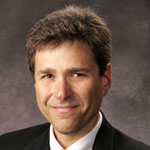
David A. Sklansky
Professor of Law
A.B, UC Berkeley (1981)
J.D., Harvard University (1984)
David A. Sklansky joined the Boalt faculty in 2005 following a decade at UCLA School of Law, where he won the campuswide Distinguished Teaching Award and was twice voted the law school's professor of the year. He teaches courses on criminal law, criminal procedure and evidence.
After graduating from Harvard Law School in 1984, Sklansky clerked for Judge Abner Mikva of the U.S. Court of Appeals for the D.C. Circuit and for U.S. Supreme Court Justice Harry Blackmun. He briefly practiced labor law at the Washington, D.C., firm of Bredhoff & Kaiser. From 1987 to 1994, Sklansky served as an assistant U.S. attorney in Los Angeles, where he specialized in white-collar fraud prosecutions. While at UCLA, he served as special counsel to the independent review panel appointed to investigate the Los Angeles Police Department's Rampart Division scandal.
Sklansky is the author of a well-regarded evidence casebook, Evidence: Cases, Commentary, and Problems, and he has written extensively about criminal procedure and policing. Notable recent publications include "Police and Democracy" in the Michigan Law Review (2005), "Quasi-Affirmative Rights in Constitutional Criminal Procedure" in the Virginia Law Review (2002) and "The Fourth Amendment and Common Law" in the Columbia Law Review (2000). Among his current projects is a book on the changing ideal of democratic policing.
Publications
Books
- Evidence: Cases, Commentary, and Problems (2003)
Published and Forthcoming Article
- Comparative Law Without Leaving Home: What Civil Procedure Can Teach Criminal Procedure, and Vice Versa [co-authored with Stephen C. Yeazell], 94 Geo. L.J. 683 (2006)
- Not Your Father’s Police Department: Making Sense of the New Demographics of Law Enforcement, 96 J. Crim. L. & Criminology 1209 (2006)
- Private Police and Democracy, 43 Am. Crim. L. Rev. 89 (2006)
- Police and Democracy, 103 Mich. L. Rev. 1699 (2005)
- Back to the Future: Kyllo, Katz, and Common Law, 72 Miss. L.J. 143 (2002)
- Quasi-Affirmative Rights in Constitutional Criminal Procedure, 88 Va. L. Rev. 1229 (2002)
- The Fourth Amendment and Common Law, 100 Colum. L. Rev. 1739 (2000)
Starr, Singleton, and the Prosecutor's Role, 26 Fordham Urb. L.J. 509 (1999) - The Private Police, 46 UCLA L. Rev. 1165 (1999)
- Traffic Stops, Minority Motorists, and the Future of the Fourth Amendment, 1997 Sup. Ct. Rev. 271 (1997)
- Cocaine, Race, and Equal Protection, 47 Stan. L. Rev. 1283 (1995)
Proposition 187 and the Ghost of James Bradley Thayer, 17 Chicano-Latino L. Rev. 24 (1995)
Electronic Publications
- Killer Seatbelts and Criminal Procedure, 119 Harv. L. Rev. F. 56 (2006)
Reports
- Report of the Rampart Independent Review Panel: A Report to the Los Angeles Board of Police Commissioners Concerning Special Order 40 [co-authored] (2001)
- Report of the Rampart Independent Review Panel: A Report to the Los Angeles Board of Police Commissioners Concerning the Operations, Policies, and Procedures of the Los Angeles Police Department in the Wake of the Rampart Scandal [co-authored](2000)
Reviews
- Review of Vivien Stern, A Sin Against the Future: Imprisonment in the World (1998), 30 J. Interdisc. Hist. 643 (2000)
Miscellaneous
- The Feds Aren’t Listening, Boston Rev., Dec. 2004/Jan. 2005, at 16 (2004)
Plea Bargaining [co-authored with Arthur Rosett], The Oxford Companion to American Law (2002) - Private Policing, The Oxford Companion to American Law (2002)
Some Cautious Optimism About the Problem of Racial Profiling, 3 Rutgers Race & L. Rev. 293 (2001) - Crack Cocaine and Equal Protection, Encyclopedia of the American Constitution, 2d ed. (2000)
- Traffic Stops, Encyclopedia of the American Constitution, 2d ed. (2000)
- Harry A. Blackmun, Encyclopedia of the American Constitution, 2d ed. (2000)
Developments in the Law -- Immigration Policy and the Rights of Aliens -- VI. - Discrimination Against Documented Aliens [co-authored], 96 Harv. L. Rev. 1400 (1983)
Note, Awards of Attorneys' Fees to Unsuccessful Environmental Litigants, 96 Harv. L. Rev. 677 (1983)
Chapters
- Seeing Blue: Police Reform, Occupational Culture, and Cognitive Burn-In, forthcoming in Police Occupational Culture: New Debates and Directions, Megan O'Neill and Monique Marks eds., Elsevier Science (2007)
- The Story of Katz v. UnitedStates: The Limits of Aphorism, in Criminal Procedure Stories, Carol S. Steiker ed., Foundation Press (2006)
http://www.law.berkeley.edu/faculty/profiles/facultyProfile.php?facID=4878
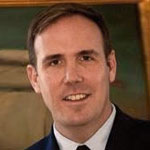
Glenn M. Sulmasy
Associate Professor of Law, Commander, USCG, JA
Commander Sulmasy is an associate professor of law at the United States Coast Guard Academy (USCGA) in New London, Connecticut. He is a member of this service academy’s permanent military faculty (appointed in August 2004) and teaches courses in international law and constitutional law. Since 2000 he has served as an adjunct faculty at Roger Williams University School of Law. Commander Sulmasy was a Professor of International Law at the U.S. Naval War College in Newport, R.I., for the 2003-2004 academic year. In the summer of 2005, he was appointed as USCGA’s first Director of the Institute for Leadership, where he oversaw the endowed Tyler Chair, as well as leadership and scholarship programs. He serves on various boards, including the Executive Committee of the Federalist Society’s International and National Security Law Group and the advisory boards for both the Center for International and Comparative Law (University of Baltimore School of Law) and the International Law Department at the U.S. Naval War College. In December of 2005, Connecticut Governor M. Jodi Rell appointed CDR Sulmasy as her state representative to the New England Governors’ Regional Oceans Commission. He has published numerous articles and frequently provides television and radio commentary on national security and homeland security law issues. Recent articles have been published in National Review, Engage Magazine, the Notre Dame Journal of Law, Ethics and Public Policy, Providence Journal, San Diego Union Tribune, and on the award-winning Web-based legal news and research site Jurist, sponsored by the University of Pittsburgh School of Law. He is on sabbatical for the 2006-2007 academic year at the Boalt Hall School of Law, University of California, Berkeley.
Commander Sulmasy has received numerous military awards including: three Meritorious Service Medals, Department of Defense Commendation Medal, USCG Commendation Medal, Navy Achievement Medal, Operation Desert Shield Medal and Kuwait Liberation Medal. He has received commendations for his service from the U.S. Congress, Governor of the State of Connecticut, and the United States Attorney for the District of Connecticut. Commander Sulmasy also received the Naval Order Award for Professor of the Year (2003), and was recently selected for the Alumni of the Year Award to be presented by the USCGA Alumni Association in October of 2006.
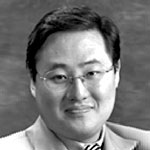
John Yoo
Professor of Law
A.B., Harvard University (1989) J.D., Yale University (1992) John Yoo received his B.A., summa cum laude, in American history from Harvard University. Between college and law school, he worked as a newspaper reporter in Washington, D.C. He received his J.D. from Yale Law School, where he was an articles editor of the Yale Law Journal. He then clerked for Judge Laurence H. Silberman of the U.S. Court of Appeals of the D.C. Circuit.
Professor Yoo joined the Boalt faculty in 1993, then clerked for Justice Clarence Thomas of the U.S. Supreme Court. He served as general counsel of the U.S. Senate Judiciary Committee from 1995-96. From 2001 to 2003, he served as a deputy assistant attorney general in the Office of Legal Counsel at the U.S. Department of Justice, where he worked on issues involving foreign affairs, national security and the separation of powers.
Professor Yoo has been a visiting professor at the University of Chicago and the Free University of Amsterdam, and he held the Fulbright Distinguished Chair in Law at the University of Trento, Italy in 2006. He has received research fellowships from the University of California, Berkeley, the Olin Foundation and the Rockefeller Foundation, and is a visiting scholar at the American Enterprise Institute. Professor Yoo also has received the Paul M. Bator Award for excellence in legal scholarship and teaching from the Federalist Society for Law and Public Policy. He has testified before the judiciary committees of the U.S. Senate and House of Representatives, and has advised the State of California on constitutional issues.
Professor Yoo has published articles about foreign affairs, international law and constitutional law in a number of the nation's leading law journals. He is the author of The Powers of War and Peace: The Constitution and Foreign Affairs after 9/11 (University of Chicago Press, 2005) and War by Other Means: An Insider's Account of the War on Terror (Atlantic Monthly Press, 2006).
http://www.law.berkeley.edu/faculty/profiles/facultyProfile.php?facID=235
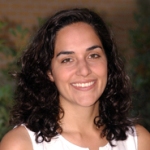
Jennifer Chacón
Professor of Law
Jennifer Chacón was awarded her J.D. from Yale Law School. After graduation, she served as a law clerk to the Honorable Sidney R. Thomas, U.S. Court of Appeals for the Ninth Circuit. From 1999-2003, she was an attorney with Davis Polk & Wardwell in New York City. She teaches Criminal Law, Criminal Procedure and Immigration Law.
She says, "Identifying the conduct that is criminalized within a society and determining the manner in which that society chooses to protect its criminally accused and those convicted of crimes provides an interesting way to assess the nature and strength of that society's commitment to democratic institutions. My research interests center upon the nexus of criminal law and procedure and more general issues of citizenship. I hope to contribute to the scholarship that both examines and advances the quest to build more perfect democracies, protective of the rights of all people."
Career Highlights
Law Clerk to Judge Sidney R. Thomas, U.S. Court Court of Appeals for the Ninth Circuit;
Litigation Association, Davis Polk & Wardwell, 1999-2003.
Special Interests: Criminal Procedure, Criminal Law and Immigration Law.
Education
J.D., Yale Law School
Special Interests: Criminal Procedure, Criminal Law and Immigration Law and Policy
http://www.law.ucdavis.edu/faculty/chacon.shtml
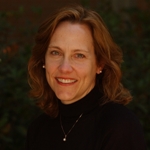
Diane Marie Amann
Professor of Law
"The law's awesome power resounds in the clang of theprison door closing on a man or woman convicted of crime.
"As lawyers and future lawyers, we must strive to use that power inmanners fair and just to victim, to defendant, and to society. Globaltechnological advances and mounting fear of crime confound this effort. We needto reexamine what behavior we consider criminal, to ask anew its causes, toquestion the extent to which a government may police crimes beyond its borders.We must review what kinds of evidence, what methods of proving guilt, weconsider appropriate. Finally, we must rethink what we hope to achieve bypunishment and thus adjust how, and how long, we punish.
"These issues stirred me in my practice as a criminal defense attorney andin my service with two distinguished members of the federal judiciary. I nowenjoy exploring them with students and colleagues."
Special Interests: International and Transnational CriminalLaw and Procedure, Constitutional Law and Federal Courts, International andComparative Law, Human Rights Law
Publications
Chapters
- The International Criminal Court and the Sovereign State,in GLOBAL GOVERNANCE AND INTERNATIONAL LEGAL THEORY 185 (Ige F. Dekker &Wouter G. Werner eds., 2004)
- Dialogue entre chercheurs de différentes traditions juridiques. Une perspectiveaméricaine (Dialogue Among Researchers from Different Legal Traditions: AnAmerican Perspective), in VARIATIONS AUTOUR D'UN DROIT COMMUN. ACTES DESPREMIERES RENCONTRES DE L'UMR DE DROIT COMPARÉ DE PARIS (VARIATIONS AROUND A COMMON LAW:PROCEEDINGS OF THE FIRST CONFERENCE OF THE INTERDISCIPLINARY RESEARCH UNIT OFCOMPARATIVE LAW, PARIS) 363 (Mireille Delmas-Marty, Horatia Muir-Watt, andHélène Ruiz Fabri eds., 2002)
Articles
- Abu Ghraib, 153 UNIVERSITY OF PENNSYLVANIA LAW REVIEW 2085(2005)
‘Raise the Flag and Let It Talk’: On the Use of External Norms inConstitutional - Decision-Making, 2 INTERNATIONAL JOURNAL OF CONSTITUTIONAL LAW597 (2004)
Guantánamo, 42 COLUMBIA JOURNAL OF TRANSNATIONAL LAW 263 (2004) - Unipolar Disorder: A European Perspective on U.S. Security Strategy, 27HASTINGS JOURNAL OF INTERNATIONAL AND COMPARATIVE LAW 447 (2004)
- Foreword, 11 UC DAVIS JOURNAL OF INTERNATIONAL LAW & POLICY (publishingpapers from symposium entitled "Rethinking Reconstruction AfterIraq") (forthcoming 2005)
- Le dispositif américain de lutte contre le terrorisme (The U.S. CampaignAgainst Terrorism), REVUE DE SCIENCE CRIMINELLE ET DE DROIT PÉNAL COMPARÉ 745(no. 4-2002) (abridged version published as Le leggi americane contro ilterrorismo,
- CRITICA DEL DIRITTO 27 (Emanuela Fronza trans.) (no. 1-2003))
Group Mentality, Expressivism, and Genocide, 2 INTERNATIONAL CRIMINAL LAWREVIEW 93 (2002) - The United States of America and the International Criminal Court, 50 AMERICANJOURNAL OF COMPARATIVE LAW (SUPPLEMENT) 381 (2002) (coauthored with M.N.S.Sellers)
- Calling Children to Account: The Proposal for a Juvenile Chamber in the SpecialCourt for Sierra Leone, 29 PEPPERDINE LAW REVIEW 167 (2002)
- Medium As Message in Sierra Leone, 7 ILSA JOURNAL OF INTERNATIONAL ANDCOMPARATIVE LAW 237 (2001)
- Capital Punishment: Corporate Criminal Liability for Gross Violations of HumanRights, 24 HASTINGS INTERNATIONAL AND COMPARATIVE LAW REVIEW 327 (2001)
- Assessing International Criminal Adjudication of Human Rights Atrocities, THIRDWORLD LEGAL STUDIES 169 (2000-2003)
- Under Deconstruction: International Criminal Law in a Postmodern World, 3 GREENBAG 2D 369 (2000)
- Harmonic Convergence? Constitutional Criminal Procedure in an InternationalContext, 75 INDIANA LAW JOURNAL 809 (2000)
- Spotting Money Launderers: A Better Way to Fight Organized Crime?, 27 SYRACUSEJOURNAL OF INTERNATIONAL LAW AND COMMERCE 199 (2000)
- The Rights of the Accused in a Global Enforcement Arena, 6 ILSA JOURNAL OFINTERNATIONAL AND COMPARATIVE LAW 555 (2000)
- A Whipsaw Cuts Both Ways: The Privilege Against Self-Incrimination in anInternational Context, 45 UCLA LAW REVIEW 1201 (1998)
http://www.law.ucdavis.edu/faculty/amann.shtml
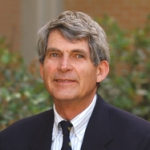
Floyd F. Feeney
Homer and Ann Berryhill Angelo Professor of Law and Director of the LL.M. Program
B.S. History, Davidson College, 1955
J.D., New York University, 1960
Special Interests: Criminal Justice, Election Law
"Students often experience emotions when they open and see chapters headed 'murder' or other heinous crimes in their criminal law casebooks for the first time. The actual practice of criminal law, however, is not always as it is portrayed in novels and film," said Floyd Feeney. "Criminal law in the real world is dramatic and fascinating, but it is also very human," said Feeney. "The victims of crime have real blood and real injuries and defendants are complicated human beings. Some are wholly innocent, some are guilty but themselves victims, and others have life histories that are as sad as the harm they cause their victims." The criminal lawyer must often try to make sense of "wildly conflicting stories and mind-boggling gaps in information," Feeney said. He or she must deal sympathetically with victims, witnesses and defendants, and above all, translate the abstractions of the law into something juries can readily understand. "Criminal law presents superb opportunities to serve as a trial attorney in the courtroom, as a guarantor of basic liberties and as a creator of a better society."
Floyd Feeney is the Homer and Ann Berryhill Angelo Professor of Law and Director of the LL.M. Program. He is a graduate of Davidson College (B.S. History 1955) and the New York University School of Law (J.D. 1960). At Davidson, he served as President of the Student Body. At the NYU Law School he was a Root-Tilden Scholar, editor-in-chief of the law review, and received the Sommer Award as outstanding graduate for 1960.
A former law clerk for U.S. Supreme Court Justice Hugo Black (1961 Term), he served as Deputy Special Counsel for the President's Committee on Equal Employment Opportunity (1962-63), Special Assistant to the Administrator of the Agency for International Development (1963-1966), and Assistant Director, President's Crime Commission (1966-67).
He came to UC Davis in 1968 as Professor of Law. From 1968 until 1986, he also served as Executive Director of the Center on Administration of Criminal Justice. During 1983-84, he was Director of the London Office of the Vera Institute of Justice.
The author of seven books and numerous articles, he has received awards from the National Insitute of Justice and the California Probation, Parole, and Correctional Association. A Fulbright scholar at the University of Augsburg (Germany) in 1995-96, he has taught and lectured in China, Germany, Italy, Japan, Mexico, and the United Kingdom. His consulting and evaluation projects include work for the National Institute of Justice, the National Center for State Courts, the British Home Office, the California Legislature, the American Bar Association's European and Eurasian Law Initiative, the Police Foundation and numereous individual criminal justice agencies. In 2000-2001 he served as legal advior to the Speaker's Commission on the California Initiative Process.
Career Highlights
- Law Clerk for Justice Black, U.S. Supreme Court, 1961;
- Assistant Director of President's Crime Commission, 1967;
- Pepperdine Award for Outstanding Contribution to Corrections from the California Probation, Parole and Correctional Association;
- Director of the London Office of the Vera Institute of Justice, 1983-84;
- Co-author (with Dubois) of Improving the Initiative Process.
Publications
Books
-
American Criminal Procedure: An Introduction and Selected Readings (Beijing: China University of Political Science and Law 2003) (co-edited with Liling Yue, 2003, in Chinese).
-
Lawmaking by Initiative: Issues, Options and Comparisons (Agathon Press, 1998) (with P. Dubois).
-
German and American Prosecutions: An Approach to Statistical Comparison (Bureau of Justice Statistics, U.S. Department of Justice, 1998).
-
Improving the California Initiative Process: Options for Change (California Policy Seminar, 1992) (with P. Dubois).
-
Arrests Without Conviction: How Many and Why They Occur (U.S. Government Printing Office, 1983) (with F. Dill & A. Weir).
-
The Police and Pretrial Release (Lexington Books, 1982).
-
Juvenile Diversion Through Family Counseling: An Exemplary Project Handbook (U.S. Government Printing Office, 1976) (with R. Baron).
Articles
-
"Ethical Issues in Criminal Defense: The United States Experience," 26 Hitotsubashi Journal of Law and Politics 3 (1998) (arrangements have also been made for republication in a Chinese journal).
-
"Criminal Law Across Borders," Chinese Journal of Juvenile Delinquency (1997) (with Mark Ma) (in Chinese) (Qing Shao Nian Fan Zui Yanjiu).
-
Summary Proceedings in Penal Matters in the United States, 42 Am. J. Comp. L. 747 (1994) (with L. Herman).
-
A Voter Survey about the California Ballot Pamphlet, 5 CPS Brief No. 14 (August 1993) (with P. Dubois & E. Costantini).
-
The Constitutional Framework of the Representative System in the United States: Basic Principles and New Issues, J. of Centro de Estudios Parlamentarios, Fundacion Mexicana Cambio XXI (1993) (in Spanish).
-
Improving the California Initiative Process, 3 CPS Brief No. 10 (November 1991) (with P. Dubois).
-
Public Defenders, Assigned Counsel, Retained Counsel: Does the Type of Criminal Defense Counsel Matter? 42 Rutgers L. J. 361 (1991) (with P. Jackson).
-
Evaluating Trial Court Performance, 12 Justice System J. 148 (1987); Reprinted in Handbook of Court Administration and Management (New York: Marcel Dekker, Inc., 1993).
-
Defense Disclosure in the Magistrates' Courts, 49 Mod. L. Rev. 593 (1986) (with J. Baldwin).
-
Japanese Criminal Justice--Some Brief Comparisons, 31 Crime & Delinquency 627 (1985).
-
Advance Disclosure of the Prosecution Case, 17 Home Office Res. Bull. 5 (1984).
The Impact of Court Delay on Remands in Custody and Some Possible Remedies, in Transcript of JUSTICE Conference on Time and Crime 52 (London: JUSTICE, 1984).
The Prevention and Control of Robbery, 13 Criminology 102 (1975) (with A. Weir). -
A Comparative Description of the New York and California Criminal Justice Systems: Arrest Through Arraignment, 26 Vand. L. Rev. 973 (1973) (with J. Woods).
-
Preventing Delinquency Through Diversion, Fed. Probation 13 (March 1973) (with R. Baron & W. Thornton); reprinted in Back on the Street: The Diversion of Juvenile Offenders (Prentice-Hall, 1976) (R. Carter & M. Klein, eds.); and in Status Offenders and the Juvenile Justice System (NCCD, 1978) (R. Allison, ed.).
-
Citation in Lieu of Arrest: The New California Law, 25 Vand. L. Rev. 367 (1972).
Teaching Law to the Police Officer, 16 Police 25 (January 1972).
Chapters
-
Elections for President and Congress: The Constitution and the Federal Election Commission, in Tomo I Derecho Constitucional Comparado: Mexico-Estados Unidos 337 (J. Smith, ed. 1990) (in Spanish).
-
Robbers as Decision-Makers, in The Reasoning Criminal 53 (R. Clarke and D. Cornish, eds.) (Springer-Verlag, 1986).
-
Advance Disclosure of the Prosecution Case, in Managing Criminal Justice (D. Moxon, ed.) (Her Majesty's Stationery Office 1985).
-
Interdependence as a Working Concept, in Managing Criminal Justice (D. Moxon, ed.) (Her Majesty's Stationery Office, 1985).
-
Burglary and Robbery, in Encyclopedia of Crime and Justice (The Free Press, 1983).

